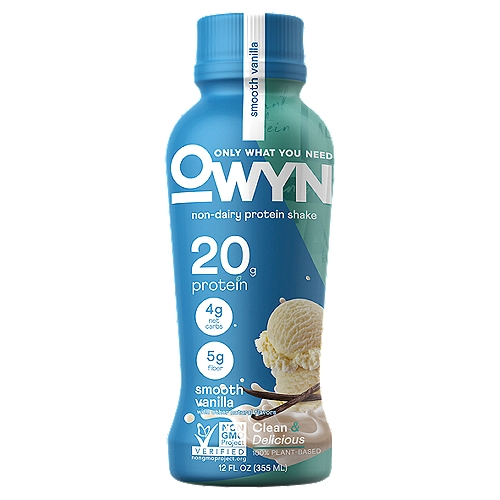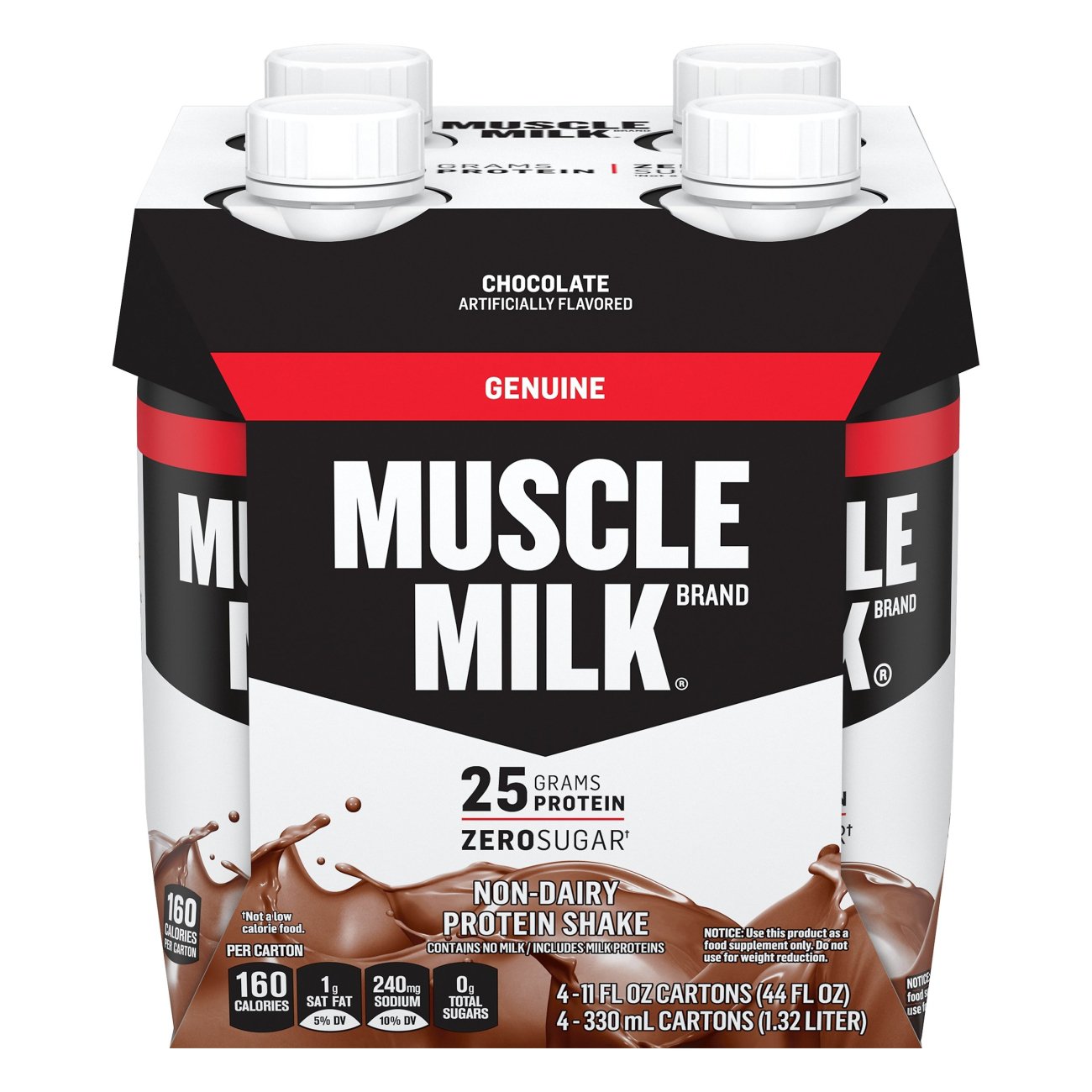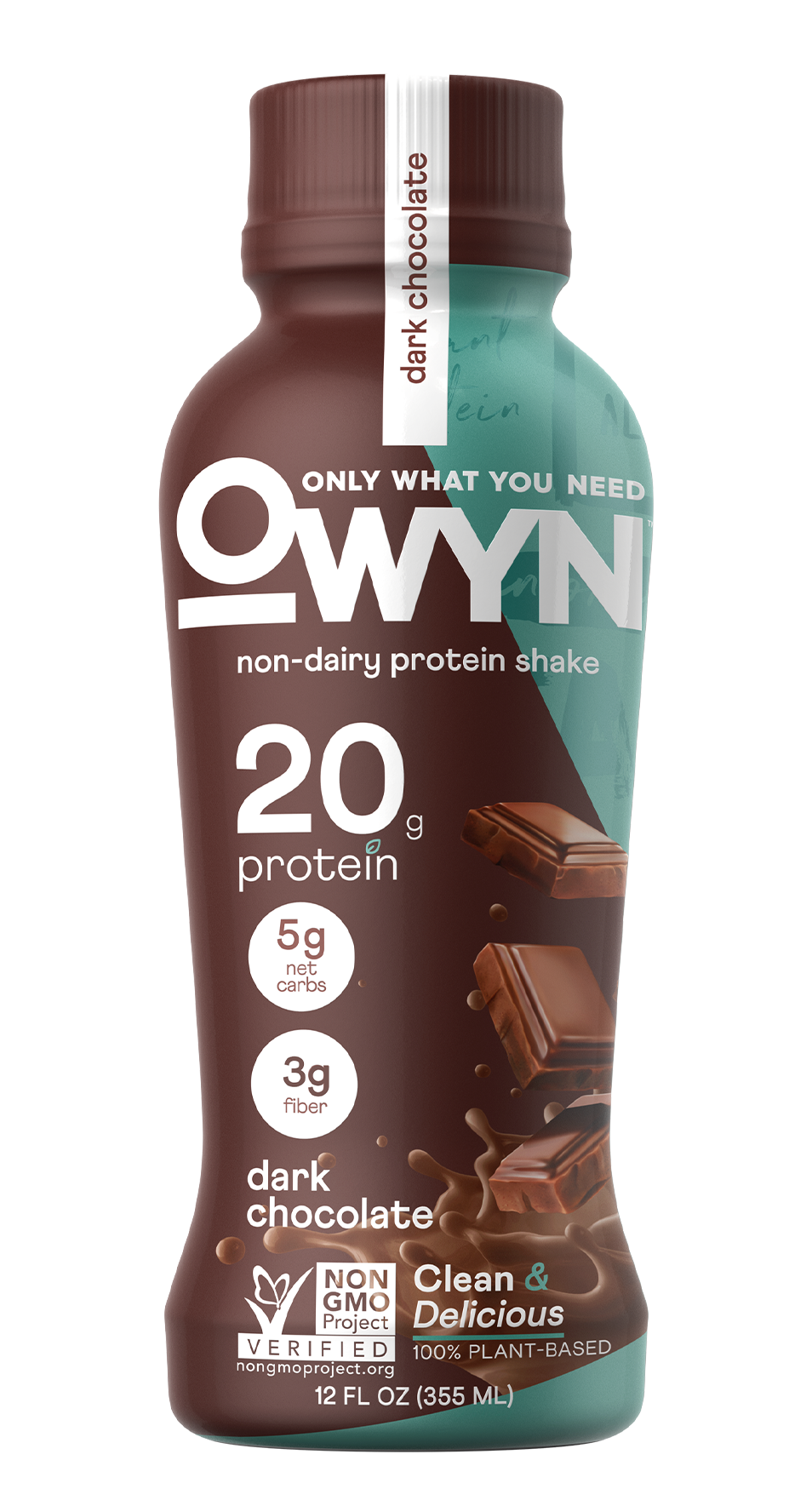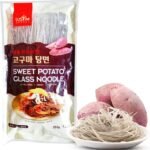Your trusted source for simple, practical nutrition advice and tips for a healthier lifestyle.
Non-dairy protein shakes offer a plant-based alternative to traditional whey protein shakes. They cater to vegans, lactose-intolerant individuals, and those seeking variety.
Non-dairy protein shakes have gained popularity due to their health benefits and versatility. These shakes are often made from plant-based proteins such as pea, hemp, rice, or soy. They provide essential amino acids, vitamins, and minerals. These shakes are suitable for people with dietary restrictions or allergies.
They also support muscle recovery and growth, making them ideal for athletes and fitness enthusiasts. Non-dairy protein shakes are easy to digest and can be incorporated into various diets. With numerous flavors and brands available, finding the right shake has never been easier.
Introduction To Non-dairy Protein Shakes
Non-dairy protein shakes are a great option for those who avoid dairy. These shakes provide protein without the lactose or animal products. Many people choose non-dairy options for health or ethical reasons. Non-dairy protein shakes use plant-based proteins like pea, soy, and hemp.
Benefits Of Non-dairy Protein
Non-dairy proteins offer many benefits. Here are some key advantages:
- Allergen-Free: No dairy means no lactose, reducing allergy risks.
- Easy Digestion: Plant proteins are easier to digest for most people.
- Ethical Choice: Ideal for vegans and those avoiding animal products.
- Rich in Nutrients: Packed with vitamins, minerals, and fiber.
| Protein Source | Benefits |
|---|---|
| Pea Protein | High in iron, easily digestible |
| Soy Protein | Complete protein with all essential amino acids |
| Hemp Protein | Rich in omega-3 and omega-6 fatty acids |
Rising Popularity
Non-dairy protein shakes are becoming more popular. More people are choosing plant-based diets. This trend boosts demand for non-dairy options. Many athletes now use non-dairy shakes for recovery. These shakes are also gaining popularity in weight loss communities.
The market for non-dairy protein is growing fast. New brands and flavors are launching regularly. Grocery stores are stocking more non-dairy protein options. This rise in popularity is due to the health and ethical benefits.
Plant-based Protein Sources
Many people seek non-dairy protein shakes due to allergies or dietary choices. Plant-based protein sources are excellent alternatives. They are rich in essential nutrients and easy to digest.
Pea Protein
Pea protein is derived from yellow peas. It is a popular choice for non-dairy protein shakes. This protein source is rich in essential amino acids. It helps build muscle and supports overall health.
Pea protein is also low in allergens. This makes it a safe option for those with food sensitivities. Additionally, it has a mild taste, blending well with various flavors.
Hemp Protein
Hemp protein comes from hemp seeds. It is a complete protein, containing all nine essential amino acids. This makes it an excellent choice for those seeking a balanced diet.
Hemp protein is also rich in fiber, which aids digestion. It contains healthy fats, such as omega-3 and omega-6 fatty acids. These fats support heart health and reduce inflammation.
Many people appreciate the nutty flavor of hemp protein. It adds a unique taste to shakes and smoothies.
Brown Rice Protein
Brown rice protein is made from whole grain brown rice. It is hypoallergenic, making it suitable for people with food allergies. This protein source is also easily digestible, reducing the risk of stomach discomfort.
Brown rice protein is rich in B vitamins, which boost energy levels. It also contains antioxidants that protect the body from free radicals.
Though it has a slightly grainy texture, blending it with fruits can improve its taste and consistency.
| Protein Source | Key Benefits | Taste |
|---|---|---|
| Pea Protein | Rich in amino acids, low in allergens | Mild |
| Hemp Protein | Complete protein, high in fiber | Nutty |
| Brown Rice Protein | Hypoallergenic, rich in B vitamins | Grainy |
Nut-based Protein Options
Nut-based protein shakes are gaining popularity among health enthusiasts. They offer a tasty and nutritious alternative to dairy-based shakes. These protein shakes are packed with essential nutrients and are suitable for those with lactose intolerance or following a vegan diet. Two popular nut-based protein options are almond protein and cashew protein.
Almond Protein
Almond protein is derived from ground almonds. It is a rich source of protein and essential nutrients. Almond protein is known for its light, nutty flavor, making it a delicious addition to shakes. It is also gluten-free and suitable for a variety of diets.
- High in protein: Almond protein contains about 20 grams of protein per serving.
- Rich in vitamins and minerals: It is high in Vitamin E, magnesium, and calcium.
- Low in carbohydrates: Almond protein is a great option for low-carb diets.
- Easy to digest: This protein is gentle on the stomach, reducing bloating and discomfort.
| Nutrient | Amount per serving |
|---|---|
| Protein | 20 grams |
| Vitamin E | 7.4 mg |
| Magnesium | 76 mg |
| Calcium | 76 mg |
Cashew Protein
Cashew protein is made from finely ground cashews. It offers a creamy texture and a mild, slightly sweet flavor. Cashew protein is a versatile addition to many recipes, not just shakes.
- Rich in healthy fats: Cashew protein contains healthy monounsaturated fats.
- Good source of iron: It helps boost your iron intake.
- Contains antioxidants: Cashew protein is rich in antioxidants that support your immune system.
- High in magnesium: It helps with muscle function and energy production.
| Nutrient | Amount per serving |
|---|---|
| Protein | 15 grams |
| Iron | 4 mg |
| Magnesium | 82 mg |
| Monounsaturated fats | 12 grams |
Grain And Seed Protein Choices
Non-dairy protein shakes offer many grain and seed protein choices. These options are perfect for those seeking plant-based protein sources. They are also great for people with dairy allergies. Let’s dive into two popular choices: quinoa protein and chia seed protein.
Quinoa Protein
Quinoa is a superfood rich in protein and essential amino acids. It is gluten-free and perfect for those with gluten intolerance. Quinoa protein is easy to digest and provides a complete protein source.
Here are some benefits of quinoa protein:
- High protein content: Contains all nine essential amino acids.
- Rich in fiber: Aids in digestion and promotes fullness.
- Loaded with vitamins and minerals: Includes iron, magnesium, and B vitamins.
Quinoa protein can be found in many non-dairy protein shakes. It adds a nutty flavor and smooth texture.
Chia Seed Protein
Chia seeds are tiny but packed with nutrients. They are an excellent source of plant-based protein. Chia seed protein is also rich in omega-3 fatty acids and antioxidants.
Here are some benefits of chia seed protein:
- High in protein: Provides a significant amount of plant-based protein.
- Rich in omega-3 fatty acids: Supports heart health and reduces inflammation.
- Loaded with antioxidants: Helps fight free radicals and protect cells.
Chia seed protein adds a mild, slightly nutty flavor to shakes. It also helps thicken the shake, making it more satisfying.
Both quinoa and chia seed proteins are excellent choices for non-dairy shakes. They provide essential nutrients and are easy to incorporate into your diet. Try them in your next protein shake!
Flavor Combinations
Non-dairy protein shakes offer a wide variety of flavor combinations. These flavors can suit any taste preference. Whether you like fruity, chocolate, or nutty, there’s a shake for you.
Fruity Blends
Fruity blends are refreshing and packed with vitamins. They are ideal for a morning boost. Popular choices include:
- Strawberry Banana: Sweet and creamy with a hint of tartness.
- Mango Pineapple: Tropical and tangy, perfect for summer days.
- Blueberry Acai: Rich in antioxidants and bursting with flavor.
You can mix fresh or frozen fruits with non-dairy milk. Add a scoop of your favorite plant-based protein powder for an energy boost.
Chocolate And Nutty Mixes
Chocolate and nutty mixes are perfect for satisfying your sweet tooth. They are also full of protein. Here are some popular combinations:
- Chocolate Almond: Rich and creamy with a nutty finish.
- Peanut Butter Chocolate: A classic mix that’s both sweet and salty.
- Hazelnut Mocha: A coffee lover’s dream with a nutty twist.
You can use cocoa powder or vegan chocolate protein powder. For the nutty flavor, add a spoonful of almond or peanut butter. Mix these with non-dairy milk for a delicious treat.
Homemade Vs. Store-bought Shakes
Choosing between homemade and store-bought non-dairy protein shakes can be tricky. Each option has its own set of advantages and disadvantages. Let’s dive into the details to help you make an informed decision.
Pros And Cons
Both homemade and store-bought shakes have their pros and cons. Here’s a quick look at each:
| Homemade Shakes | Store-Bought Shakes |
|---|---|
|
|
Cost Comparison
Cost is another crucial factor to consider.
| Homemade Shakes | Store-Bought Shakes |
|---|---|
|
|
Nutritional Benefits
Non-dairy protein shakes offer a wealth of nutritional benefits. They are perfect for those who are lactose intolerant or prefer plant-based diets. These shakes are packed with essential nutrients that support overall health and wellness.
Essential Amino Acids
Non-dairy protein shakes contain all the essential amino acids your body needs. Amino acids are the building blocks of protein. They help with muscle repair and growth. Your body cannot produce these amino acids, so you must get them from food.
| Amino Acid | Function |
|---|---|
| Leucine | Boosts muscle growth |
| Lysine | Helps with calcium absorption |
| Valine | Supports muscle repair |
Vitamins And Minerals
Non-dairy protein shakes are rich in vitamins and minerals. These nutrients support your body’s daily functions. They also help improve your overall health.
- Vitamin B12: Boosts energy levels and supports brain health.
- Iron: Promotes healthy blood cells.
- Calcium: Strengthens bones and teeth.
Many non-dairy protein shakes are also fortified with additional nutrients. These include vitamin D, magnesium, and potassium. They ensure you meet your daily nutritional needs.

Credit: www.fairwaymarket.com
Recipes To Try
Non-dairy protein shakes offer a delicious way to boost your protein intake. These recipes are easy to make and perfect for various needs. Enjoy them for breakfast or after a workout.
Easy Breakfast Shakes
Start your day with these nutritious and tasty breakfast shakes:
-
Berry Banana Blast
- 1 cup almond milk
- 1 banana
- 1/2 cup mixed berries
- 1 scoop pea protein powder
Blend all ingredients until smooth. Pour into a glass and enjoy.
-
Green Power Shake
- 1 cup coconut milk
- 1 handful spinach
- 1/2 avocado
- 1 scoop hemp protein powder
Combine ingredients in a blender. Mix until creamy and serve immediately.
Post-workout Shakes
Refuel your muscles with these protein-packed post-workout shakes:
-
Chocolate Recovery Shake
- 1 cup soy milk
- 1 scoop chocolate rice protein powder
- 1 tablespoon almond butter
- 1 teaspoon cocoa powder
Blend until smooth. Drink to help your muscles recover.
-
Vanilla Berry Delight
- 1 cup oat milk
- 1/2 cup strawberries
- 1 scoop vanilla pea protein powder
- 1 tablespoon chia seeds
Combine all items in a blender. Mix well and enjoy after your workout.
Tips For Choosing The Right Shake
Choosing the best non-dairy protein shake can be tricky. Here are some tips to help you find the perfect one for your needs. Focus on reading labels and avoiding additives.
Reading Labels
Always read the labels on protein shakes. Look for key ingredients and nutritional information. Here are some things to check:
- Protein Source: Ensure it is from plants like peas or soy.
- Protein Content: Aim for at least 20 grams per serving.
- Sugar Levels: Look for shakes with less than 5 grams of sugar.
- Calorie Count: Keep it under 200 calories per serving.
Avoiding Additives
Avoid shakes with unnecessary additives. Additives can be harmful and reduce the quality of the shake. Look out for:
| Common Additives | Why to Avoid |
|---|---|
| Artificial Sweeteners | May cause digestive issues. |
| Preservatives | Can be harmful in large amounts. |
| Artificial Flavors | Lack nutritional value. |
By focusing on these tips, you can find a healthy and tasty non-dairy protein shake.

Credit: www.heb.com

Credit: liveowyn.com
Frequently Asked Questions
What Are Non-dairy Protein Shakes?
Non-dairy protein shakes are beverages made without dairy ingredients. They use plant-based protein sources like soy, pea, or hemp.
Are Non-dairy Protein Shakes Healthy?
Yes, non-dairy protein shakes can be healthy. They offer essential nutrients and are suitable for those with lactose intolerance.
Which Protein Is Best In Non-dairy Shakes?
Pea protein is popular in non-dairy shakes. It offers a complete amino acid profile and is easily digestible.
Can Non-dairy Protein Shakes Help With Weight Loss?
Yes, they can aid weight loss. Non-dairy protein shakes help control hunger and support muscle maintenance.
Conclusion
Non dairy protein shakes offer a delicious and nutritious alternative for everyone. They cater to various dietary needs and preferences. These shakes are rich in protein, easy to digest, and versatile. Incorporating them into your daily routine can boost your energy levels and support muscle growth.
Enjoy a healthier lifestyle with non dairy protein shakes.





